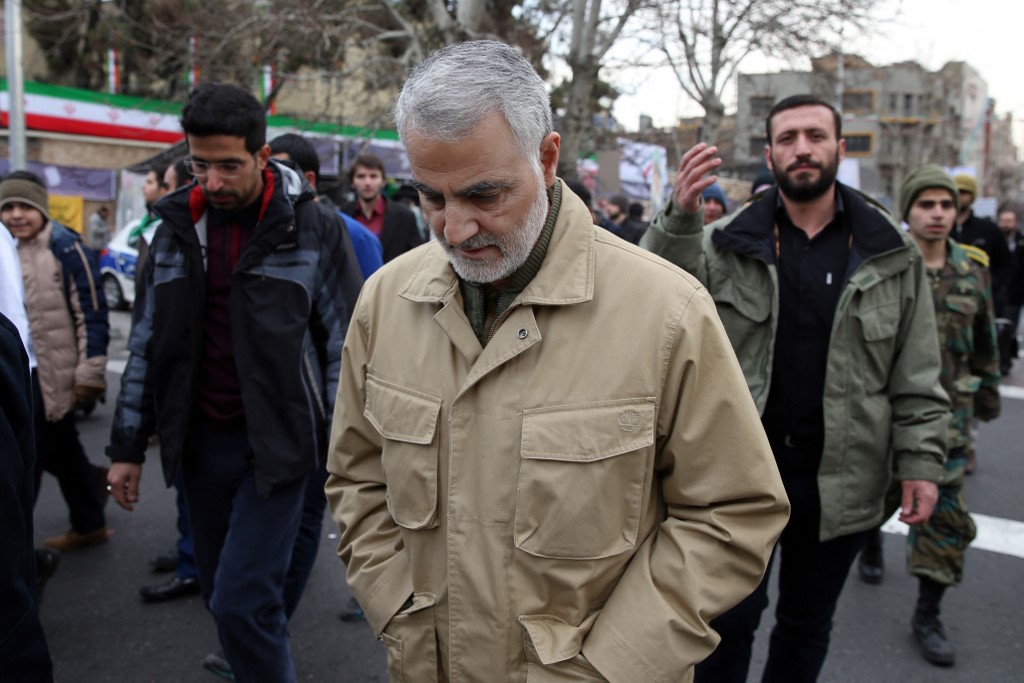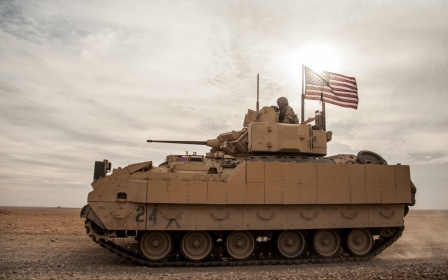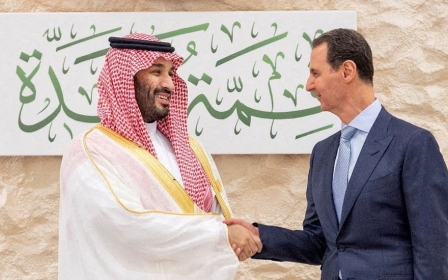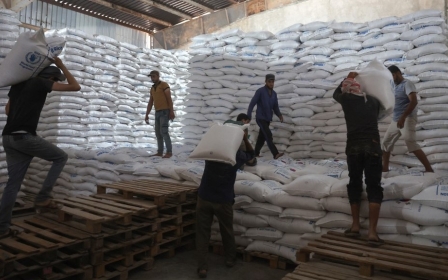Iraq: Bashar al-Assad’s other vital ally
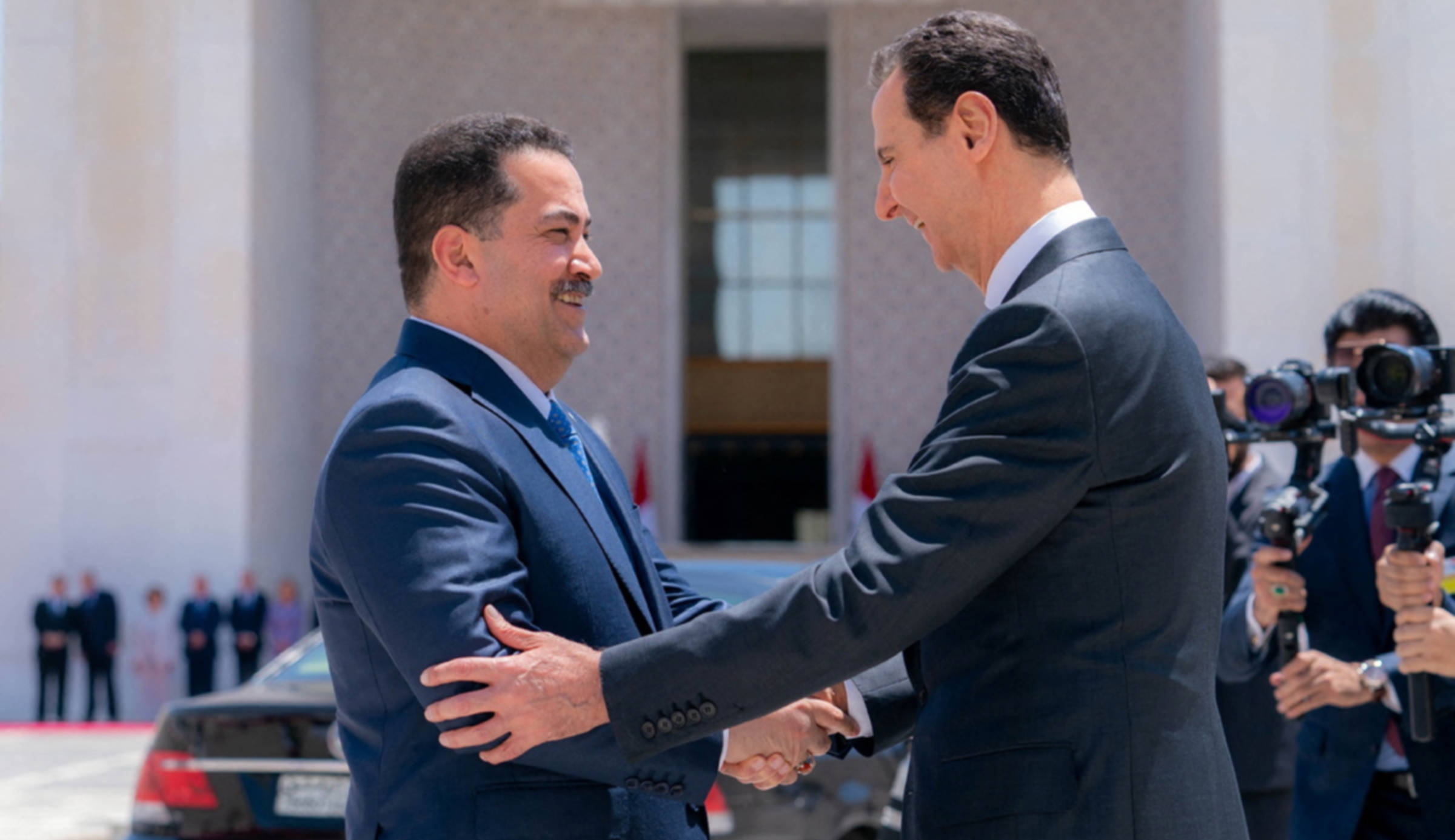
The meeting between Syrian President Bashar al-Assad and Iraqi Prime Minister Mohammed Shia al-Sudani in Damascus on 16 July marked the first time leaders from the states had met in Syria since the beginning of the uprising against Assad in 2011.
While some may confuse this as part of the wider regional shift by Arab powers to re-engage with Damascus after more than a decade of isolation, in reality, the visit represented more continuity than change.
Unlike most Arab states, which cut ties and voted to suspend Syria from the Arab League in 2011, Iraq retained relations with its western neighbour. Moreover, Baghdad was far from neutral, playing a key, if quiet, role in helping Assad survive.
Though attention has understandably focused on the role played by Iran and Russia in keeping Assad in power, Iraq’s involvement should not be ignored.
Iraq’s importance to Assad's survival was surprising given the poor historic relations between the neighbours. Saddam Hussein and Assad’s father, Hafez, who ruled from 1970 until his death in 2000, hated each other.
Stay informed with MEE's newsletters
Sign up to get the latest alerts, insights and analysis, starting with Turkey Unpacked
An ideological split in the Ba’ath party in the 1960s meant Baghdad and Damascus were ruled by different, often hostile, factions, despite bearing the same name. Personal animosity between Hafez and Saddam worsened matters, leading to their sponsoring rival allies abroad: Syria supporting Iran in its eight-year war with Iraq, and Baghdad backing anti-Syrian factions in the Lebanese civil war. The low point came in 1991, when Hafez al-Assad joined the international coalition to expel Saddam from Kuwait.
Though Bashar al-Assad warmed relations after coming to power in 2000, the defeat of Saddam Hussein by the US in 2003 saw a return to strained ties, as Damascus secretly encouraged militants to head into Iraq to destabilise the American occupation and the newly elected government in Baghdad.
Vital ties
That said, Syria-Iraq ties did improve as trade between the two states boomed, with Iraq becoming Syria’s number one export partner on the eve of its uprising. The rise to power of pro-Iranian politicians in Iraq, such as Nouri al-Maliki, set the stage for closer cooperation, both sharing an ally in Tehran, even if Maliki and Assad shared little love.
These ties proved vital when the Syrian civil war broke out, as Iraq would offer several key lifelines to Assad.
The first was diplomatic support. In November 2011, when the Arab League voted to suspend Syria, Iraq notably abstained. Alongside votes against from Lebanon and Yemen, this allowed Assad the pretence that he was not completely isolated - something that helped shore up some domestic support.
Iraq also, along with Lebanon, opted not to join the Arab League trade embargo that followed. Given the importance of Iraqi trade to Syria’s economy, this allowed Damascus a few more months' extra capital it would use in the war, before the battlelines reached the Iraqi border and trade was largely choked off.
The importance of trade remains salient today, with Sudani during his visit to Damascus calling for all sanctions on Syria to be lifted, conscious that Iraq would be a major beneficiary.
The second lifeline was military support. While the Iraqi military didn’t formally send Assad aid, the Baghdad government made no attempt to prevent thousands of Iraqi Shia fighters heading westward to join Iranian-led brigades. The most prominent of these, the Abu al-Fadl al-Abbas Brigade, was formed in 2012 by Iranian general Qassem Soleimani, and was estimated to have several thousand Iraqi fighters at its height, playing a vital role in defending and retaking key Assad regime positions.
The importance of these fighters was seen in 2014 when many chose to return to Iraq to fight the Islamic State (IS) group, depleting government forces and contributing to the decision by Russia to directly intervene to prevent Assad’s collapse a year later.
Fight against Islamic State
Later in the war, the Iraqi government indirectly aided Assad in their shared fight against IS. Assad’s commitment to the war with IS was always secondary to his fight with rebel forces in Syria’s west. Even so, the Iraqi military and allied Popular Mobilisation Units (PMUs), with separate support from the US and Iran, as well as similar operations by the Syrian Democratic Forces in eastern Syria, helped to defeat IS.
This gave Assad the chance to retake much of central Syria, allowing him to redirect troops to reconquer the west.
Finally, Iraq provided Damascus and Baghdad’s shared ally, Iran, strategic depth from which to aid Assad. As well as providing Shia militiamen, Iraq permitted Soleimani and his Quds Force relatively free reign to criss-cross the Syrian-Iraqi border by land and air, allowing him access to weapons and supplies.
A key moment came when the US withdrew from Iraq in December 2011, giving Iraq full control over its airspace once again. Thereafter, the minister of transport, Hadi al-Ameri, who was head of the Badr Corps, a close ally of Soleimani's, permitted regular Iranian flights to cross Iraq for Syria, something the US had previously forbidden.
While Iraq insisted these were humanitarian supplies, Syria’s rebels and their allies argued they included vital weapons for Assad, as well as Hezbollah fighters from Lebanon who had joined the conflict.
No diplomatic revolution
At the height of the war, then, even though much of the Syrian-Iraqi border was inaccessible to Damascus and Baghdad, the Iraqi government was offering key diplomatic, economic and military support to help Assad survive.
Clearly many Iraqi leaders, such as Maliki or Ameri, were closely aligned to Iran and this made them more willing to help Assad
While it is tempting to link all of this to Baghdad’s closeness to Iran, and dismiss Iraq as little more than Tehran’s proxy, this is a gross over-simplification. Clearly, many Iraqi leaders, such as Maliki or Ameri, were closely aligned to Iran and this made them more willing to help Assad at the request of Soleimani or others.
But many also didn’t want to see Assad overthrown and genuinely feared both the domestic and regional consequences of the Syrian dictator’s defeat.
Quiet moves that helped keep Assad in power did therefore not provoke widespread domestic opposition.
In this sense, Sudani’s embrace of Assad in Damascus this month was no diplomatic revolution, but simply a continuation of Iraq’s cautious, quiet but supportive policy towards the Syrian leader since the beginning of the war.
The views expressed in this article belong to the author and do not necessarily reflect the editorial policy of Middle East Eye.
This article is available in French on Middle East Eye French edition.
Middle East Eye delivers independent and unrivalled coverage and analysis of the Middle East, North Africa and beyond. To learn more about republishing this content and the associated fees, please fill out this form. More about MEE can be found here.



